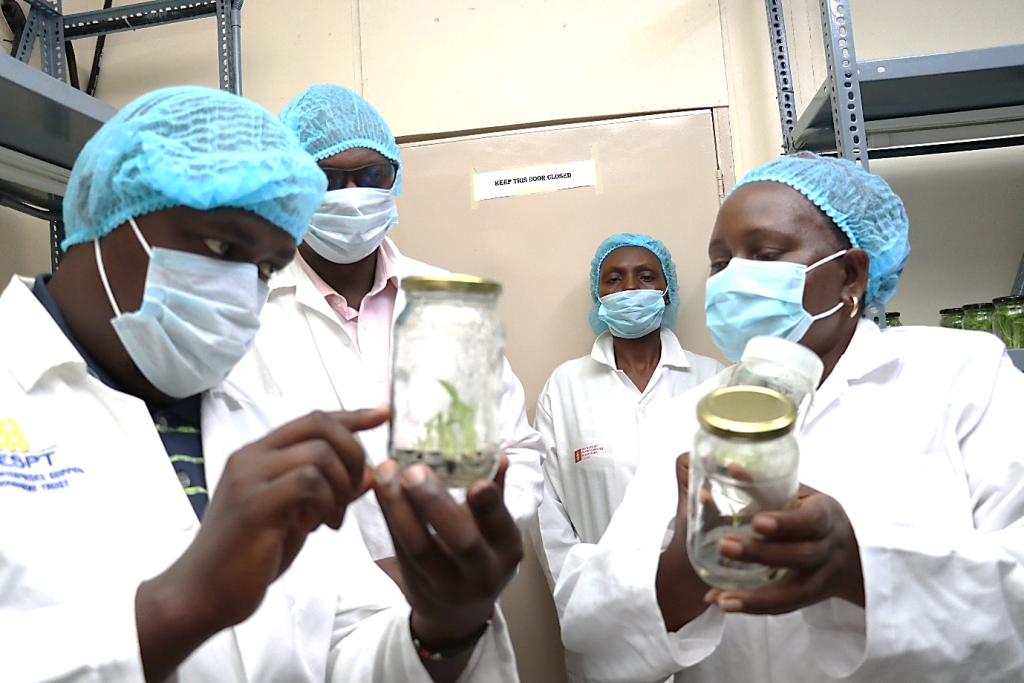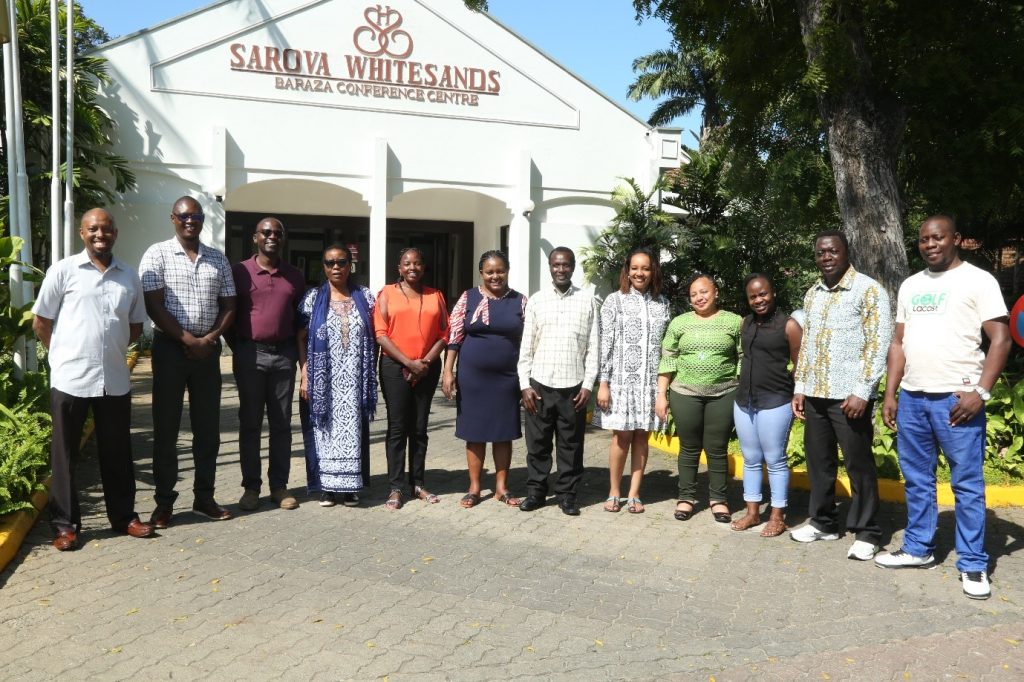
Climate change presents an urgent and unavoidable challenge, especially for developing countries like Kenya. High vulnerability to extreme weather events and low adaptive capacity threaten food security and livelihoods. In response, Climate-Smart Agriculture (CSA) offers a promising pathway to resilient food systems. Yet, its success depends on one crucial factor; education that transforms knowledge into action. This is where Taita Taveta University (TTU) leads by example.
The motivation for embedding CSA in TTU curricula is both strategic and urgent. “The drive was two-fold. The first one was the requirement that we need to train human resources beyond undergraduates, and the second, was how best we can respond to a changing climate.” Explains Dr. Mwamburi Mcharo, Dean of the School of Agriculture, Earth and Environmental Sciences at TTU.
He describes TTU as a “living lab,” boasting all of Kenya’s agro-ecological zones, which makes it the perfect place to study and respond to climate impacts firsthand.
The university identified critical gaps in the region’s educational offerings. One of the areas is livestock, where there’s no academic institution west of Mombasa or east of Nairobi that’s focusing on livestock issues. This strategic thinking, combined with national policies calling for high-level human resources to tackle climate challenges, laid the groundwork for Bachelor’s and Master’s in CSA and Rangeland Ecosystem Management
A rigorous co-creation model
TTU, in partnership with Accelerating Impacts of CGIAR Climate Research for Africa (AICCRA), embarked on a rigorous, multi-stakeholder process to develop its now-pioneering curricula. This wasn’t a top-down approach but a true co-creation. This involved a dedicated workshop in Mombasa and a two-day stakeholder engagement at the university with county government officials, experts from other universities, and bodies like the National Environment Management Authority (NEMA).
This process ensured the programs were not just academically sound and accredited but directly relevant to the needs of the industry and the community .
The programs are cognizant that CSA requires a strategic assessment to evaluate the climate-smartness of practices and whether they can achieve the desired outcomes. They are tailored to equip learners with the practical knowledge and skills necessary to inform interventions that can help address the challenges of climate change and food security to achieve the stipulated development goals.

CSA Curricula development workshop in Mombasa
Meeting real-world demands
What do the students think? Their motivations highlight the critical need for this specialized education. For Joanne, an environmentalist, the interlinkage was clear. “If agriculture is well addressed, then my environment is very protected,” she says, citing observations that sustainable farming reduces pressures like charcoal production.
For Karen, an agribusiness management graduate, it is about sustainability and profitability. “I saw that the production levels were going low, and I needed to learn more about practices that can enable these farmers to continually produce sustainably”.
Beyond the classroom, TTU’s climate-smart model is already bearing fruit through impactful research and innovation.
The Banana Tissue Culture Lab.
Banana, a staple food for millions of Kenyans, is highly vulnerable to pests, diseases, and climate variability, jeopardizing both food and income security. At TTU, the solution is being cultivated in the laboratory. Through teaching and research in banana tissue culture, the university is producing clean, disease-free, and high-yielding planting seedlings.
“We are being seen as the institution that is supposed to provide clean, healthy planting material for bananas,” Dr. Mcharo states, demonstrating a direct pipeline from university research to farmer benefit.
What began as a small-scale initiative gained traction, leading to partnerships with organizations like the Micro Enterprise Support Program Trust and the KCB Foundation
This initiative has a triple impact: students gain invaluable hands-on skills in applying biotechnology for food security; researchers can develop and test even more resilient varieties; and local farmers gain access to superior planting stock that ensures a better harvest.
According to Dr. Anne Kambura, “Our approach blends theory with hands-on application, enabling students to translate classroom concepts into real solutions for farmers. This experiential learning model builds confidence, innovation, and job readiness”.

(Left) Dr. Anne Kambura and Mr. Lucas Mwangala showcase fully matured bananas and tissue culture seedlings to H.E. Governor Andrew Mwadime and Deputy Governor Christine Saru Kilalo, during the DMDP Project closeout workshop. (Right) Alex Nduah receives a banana seedling from Dr. Mwamburi Mcharo, during a courtesy call by AICCRA.
Another critical area of focus is sustainable ecosystems through rangeland management. Kenya’s vast rangelands are not only vital for livestock production but are also significant carbon sinks. When degraded through overgrazing or mismanagement, they lose productivity, release stored carbon, and become vulnerable to desertification. The MSc in Rangeland Ecosystem Management curriculum directly addresses this by teaching sustainable grazing practices, soil health monitoring, and techniques for ecosystem restoration. This program is cultivating a new generation of rangeland scientists who can manage these landscapes as critical economic and ecological assets, transforming them into engines of livelihood and environmental health.
The students are equally optimistic about their future roles. They see themselves as future policy advisors, GIS specialists, extension officers, and sustainability consultants. Their ask for the future includes more hands-on practicals, industry attachments, and exchange programs to further enhance their readiness for the job market.
Conclusion
The TTU- AICCRA partnership proves that when academia collaborates with policy and practice, education becomes a catalyst for climate resilience. By empowering graduates with climate-smart knowledge and innovation skills, TTU is not just responding to climate change; it is shaping the leaders who will define Kenya’s sustainable future.

